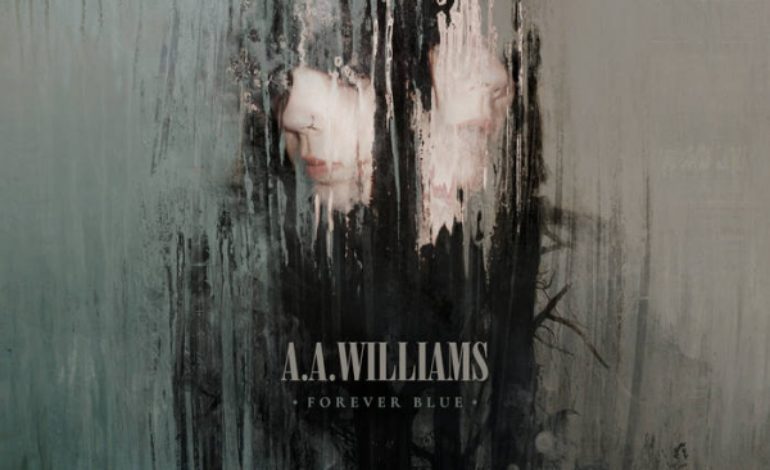

What to weep to
The dark-virtuosic singer-songwriter and multi-instrumentalist, A.A. Williams, has just released her debut full-length LP, Forever Blue. She has garnered overnight fame, having piqued the public eye upon her first stage appearance just over a year ago. Since then, she has been forefront and centerfold in the music scene frontlines. This dark and broody debut album has confirmed and crystallized her status as a newly prodigal artist that eludes comparison. Nobody is doing what she is doing. Clocking in at 42 minutes with eight tracks, A.A. Williams serves melancholy in its most immaculate form.
The album starts with a simple and skeletal song structure: piano and vocals. This structure remains for a minute or so until some wholesome strings meander in, a bittersweet cherry-on-top in the scheme of sound. Not only is she in total control of an array of sounds, but she has found the one that best expresses her sentiment.
Her spiritual dejection is splayed out and naked in a totally unlocked, disinhibited way. Like a self-inflicted vivisection of herself, the squirmy constituents that happen out of her reflect through the slow, plaintive chords that continue thickly and inexorably. It elicits an instant sympathy for her, as if she’s aware of the spectators at her soliloquy. It is very vulnerable, introspective, candid.
Vocally, Williams’ resembles the likes of Lana Del Ray. They both employ that same dreary, melismatic singing that steadily rises and elongates into the operatic. Yet, Williams picks up where Del Ray leaves off and develops it further, making it become her own and maybe even more majestic. It seems as if she’s some sort of doomsday specter uttering prophecies that fulfill only seconds after enunciating, but prophecies that only apply to her.
Throughout the entire album, Williams is begging for solace while suffocating in her own self-pity. It’s like peeking into her diary. She’s forever caged in the most harrowing lot she can’t ever quite ditch. This is suggested in lyrics like in the third song on the track-list, “Dirt,” as she laments, “even if I wanted/ even if I want/ I can’t hold on/ no, no, no.” Whom or what she is addressing remains ambiguous throughout the album–it may be a past lover or a vile memory, like she’s trying to reconcile some inescapably dismaying quality about herself that prevents emotional connection or self-preservation. Yet, upon entering the latter half of the album, she accepts her disposition: “please let me go in peace/ tonight it pulls me in,” the main refrain echoes in the track number four, “Fearless.”
Structurally, the album is cohesive and not without transitions that blend from the last into the next, and pretty seamlessly so, while still allowing for variation. All songs reek of estrangement and long to find the gruelingly labyrinthine way out of it. The instruments fully express this notion; at many points throughout, there are sudden explosions of sound that seem to represent her catharsis, oppugning emotions in her psyche. In “Fearless,” a male voice enters singing in scream-o, the same voice that appears sporadically throughout the remainder of the album, eventually forming a spontaneous duet with Williams.
If people aren’t weeping by the end of the album, they may have sociopathic tendencies. All in all, A.A. Williams’ debut, Forever Blue, has singlehandedly sealed her status as a bona fide creator of depressing, sadsong tunes. Perhaps in the future she may overcome her sorrowful predicament, but, until then, the more ebullient of her listeners will have to wait in unease until a more optimistic sophomore album comes out in which she can successfully jettison her blues and truthfully admit that she is fine. Only time will tell. Anyhow, whether her blues desist or not, A.A. Williams is presently the new master of music that moves.
